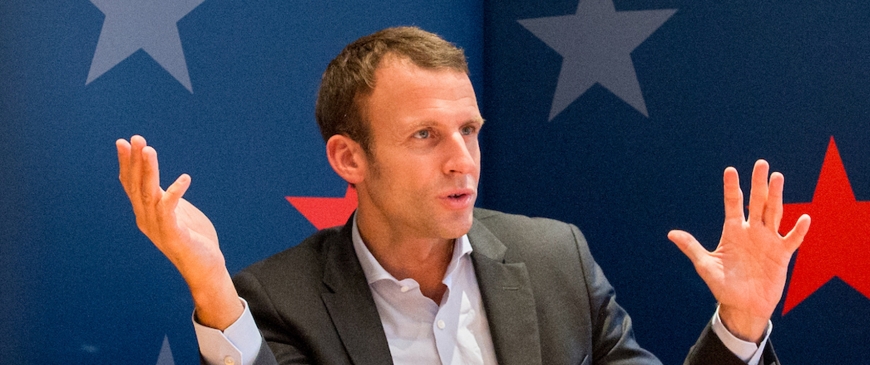
How will Germany respond to Emmanuel Macron?
Germany is divided on how to respond to Macron: some are wary of a new bargain to revive the Franco-German alliance, others are enthusiastic.
In recent years the alliance between France and Germany has fallen into disrepair. German policy-makers have ceased to respect the French point of view, because of the weakness of both the French economy and of its outgoing president. Berlin and Paris have been far apart on what to do about the euro: Germany wants more fiscal discipline and new mechanisms to make countries like France and Italy engage in painful structural economic reform, while France wants common instruments such as 'eurobonds' and steps towards a transfer union.
Emmanuel Macron has a two-part strategy for reviving the alliance with Germany and thus the EU as a whole. First, he wants to prove he is a reformer by cutting taxes on jobs, lowering the state’s share of economic output (currently 55 per cent of GDP), decentralising collective bargain and introducing Nordic-style active labour market policies. Second, having won credibility through reform, he wants to go to Berlin and propose a new concordat on the euro and much else.
Though the German establishment is delighted with Macron's victory, it is divided on how to respond.
Though the German establishment is delighted with Macron's victory, it is divided on how to respond. Those close to Angela Merkel and finance minister Wolfgang Schäuble doubt that Macron will achieve a great deal in the short term. These Christian Democrats are wary of his Keynesian thinking and of his plan for a eurozone finance minister and budget. As one Merkel aide puts it: "The rest of the EU should not pay France to do what is good for France." He said there would be no new EU treaty for a very long time, because many governments were unwilling to share more sovereignty.
But in the foreign ministry and in Social Democratic circles, senior figures hope for a more enthusiastic German response. They want Germany to compromise on its eurozone economic orthodoxies. One of them hoped that France and Germany would launch a new Elysée treaty and joint Franco-German bonds as a stepping stone to ‘eurobonds’. He was adamant that in any new coalition agreement with the Christian Democrats, the Social Democrats would insist on some softening of policy on the euro.
Yet the conservatism of Germany's voters and politicians makes it unlikely that Macron will get very far in redesigning eurozone governance, at least in the short term. In other key areas, however, such as Brexit, foreign policy, refugees and defence, there will be a new energy in Franco-German relations. The departure of the UK means that Germany needs France more than ever, as a partner in helping it to run the EU. There are no other suitable partners.
The departure of the UK means that Germany needs France more than ever.
Indeed, some of those in Berlin who are most committed to Franco-German relations say that the broader the bargaining between the two countries, the better the chances of Germany shifting its position on the euro. They say that if France made a stronger commitment to German and European security – could it even extend its nuclear umbrella eastward? – a Merkel-led government could hardly resist giving Macron some of what he wanted. In any case, she will be aware that turning a cold shoulder to Macron would only help Marine Le Pen.
Charles Grant is director of the Centre for European Reform.


Comments
Grateful for guidance.
Colin Clark Sector chair West of England LEP
Add new comment